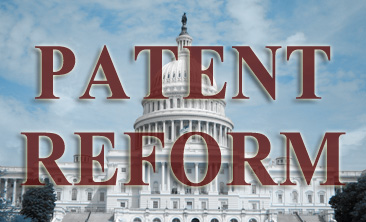 The new Micro Entity status, which became available on March 19, 2013, offers a substantial discount on fees associated with filing and prosecuting US applications to applicants who qualify.
The new Micro Entity status, which became available on March 19, 2013, offers a substantial discount on fees associated with filing and prosecuting US applications to applicants who qualify.
To qualify as a Micro Entity under 37 CFR §1.29, an Applicant (either inventor, other person, or juristic entity) must meet all of the following criteria:
1. qualify as a US-defined “Small Entity” (not more than 500 employees);
2. not be named as the inventor or applicant on more than four previously-filed US applications (an applicant, an inventor, or a joint inventor is not named who (a) has assigned or is obligated to assign title/ownership as a result of previous employment; (b) has only foreign applications or PCT applications in which the US national fees have not been paid; or (c) is employed by a US institution of higher education and has assigned, or is obligated to assign, title/ownership of the invention to that US institution);
3. have a gross income not greater than three times the US median household income in the previous year from when the fees are paid; and
4. not having done so already, or be under an obligation to sell, assign, grant, or convey title, license, or other ownership to any other entity that does not meet the same (Micro) income requirements as Applicant, inventor, or joint inventor.
It also is to be noted that the “institution of higher education” refers only to US institutions. Therefore, any university or college organized under the laws of a foreign country would not qualify for Micro Entity status under the specific definition of 37 CFR §1.29(d), even though the institution may meet all the other criteria, including gross income.
This new status is also available to any qualified foreign Applicant (person or juristic entity). For instance, 37 CFR §1.29(c) provides that, if the gross income of the Applicant in the preceding calendar year is not in US dollars, the average currency exchange rate reported during that calendar year will be used to determine whether the Applicant’s gross income exceeds the threshold specified in 37 CFR §1.29(a)(3) or (4). For 2011, the most recent calendar year in which data is available, the US median household income was $50,054. Therefore, the 2011 gross income of an Applicant applying for Micro Entity status cannot exceed $150,162 USD.
As of March 19, 2013, any Applicant qualified under the Micro Entity requirements is eligible for a 75 percent reduction of many US government fees (an amount equal to one-half of the Small Entity fee). To put this into perspective, when fees changed on March 19, 2013, the base filing fee for a Large Entity provisional application became $260. The Small Entity provisional application fee became $130, but a Micro Entity, receiving the 75 percent reduction, pays a provisional application filing fee of only $65.
The total cost of a new US utility application includes the filing fee (reduced for Small Entity electronic filing), the search fee, and the examination fee. Under the new fees effective March 19, 2013, a Large Entity pays a total filing fee of $1,600 for an electronically-filed utility application, a Small Entity pays a total filing fee of $730 for electronic filing of a utility application, while a Micro Entity pays a total filing fee of $400 for electronic filing of a utility application. The equivalent fees for a design application are $760, $380, and $190, respectively.
PLEASE NOTE: In our view, the necessary and substantial time and costs that are involved and ongoing — i.e., investigating whether all inventors and Applicants qualify for Micro Entity status; monitoring both the applications filed by the patent firm and the applications filed by other firms to ensure the number of applications filed for the same Applicant, inventor or joint inventor does not exceed the maximum number; the constant monitoring that is required to ensure that all Applicants and inventors in an application have not had a change in status; and the risk of having to open up an inventor’s or juristic entity’s financial accounts many years later when an opposing party challenges the entitlement to Micro Entity status of an application that matured into an issued patent — use of Micro Entity filings may not be worthwhile in most cases, except perhaps for qualifying US universities, or maybe certain individual inventors.


